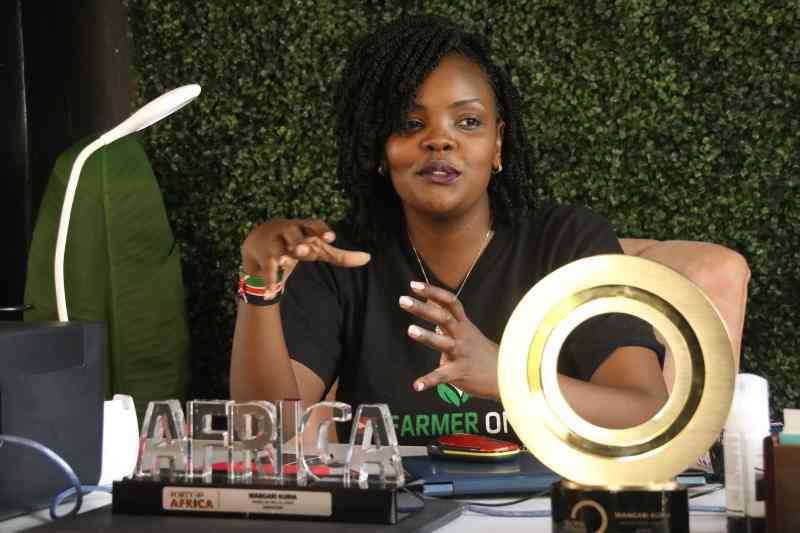×
The Standard e-Paper
Home To Bold Columnists

Wangari Kuria an agri-fluencer (Agriculture Influencer) and digital farmer, Mushroom farmer and Award winner at her farm office in Kitengela, Kajiado county. [David Gichuru, Standard]
"I was broke depressed and did not have an income. In fact, I was neck-deep in debt ranging from loans from friends and family to bank loans," says Wangari a mother of 2 after being unemployed.